Features
Don’t betray baiyas who voted you into power for lack of better alternative:
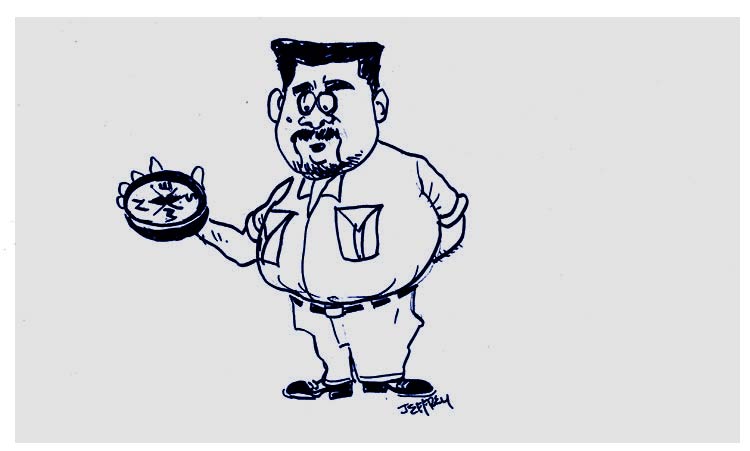
by Rohana R. Wasala
(Continued from Monday, February 17, 2025)
When I am formulated, sprawling on a pin” (from T.S. Eliot’s poem ‘The Love Song of Alfred J. Prufrock’ first published 1915)
In moments of self-reflection, President Anura Kumara Dissanayake probably feels the way Prufrock does, helplessly exposed to the probing, judgemental gaze of the public like an anaesthetised insect, say a cockroach, pinned down on a dissecting table in a school science lab. There are a number of similarities and dissimilarities that can be discerned between the fictional Prufrock and the real Dissanayake, such as those in relation to their culturedness or lack of it and self-conscious pretences.
I ended Part II with the question (as rephrased) whether the JVP/NPP (Malimawa) members believe that all ordinary Sri Lankans approve of their method of combating corruption, while also sharing their deeply negative view of 76 years of post-independence national development, with equal conviction and commitment. The obvious answer is that the Malimawans do believe so. But the reality is not what they believe. The reality is that growing numbers of ordinary Sri Lankans have begun to think that the Malimawans are not actually serious about eliminating corruption, for they seem to be beholden to certain sleazy big businessmen for having contributed lavish funds to the JVP party coffers, and that they are succumbing to the neoliberal (open market) economic policies introduced 47 years ago that they then fought tooth and nail, even shedding their blood. They are now doing the exact opposite of what they promised.
The resultant public dissent from these unexpected about-turns of the Malimawans could trigger not so gentle a reaction from them; the JVP has a history of resorting to violent repression out of a sense of righteous indignation based on their own logic. A Meta/FB video critical of the government uploaded by a Ranil Wickremasinghe supporter in Matale in central Sri Lanka went viral a couple of days ago. The FB activist was expressly visited by a local member of the JVP to warn him and demand that he take down the offensive video immediately, but he refused to do so, even after the JVPer issued a dire warning. This could be regarded as an early sign of possible, even probable, future authoritarian suppression of democratic dissent under the Malimawa administration. More serious similar cases of suppression of opposition (like the recent physical attack on a rival activist in Kamburupitiya) are becoming daily occurrences.
Does the current performance of the NPP promise a good enough change from the Gotabhaya Rajapaksa legacy to justify their arrogant intolerance of adverse criticism?
The previous presidential and parliamentary elections held respectively on November 16, 2019 and August 5, 2020 and won by Gotabaya Rajapaksa and the Sri Lanka Podu Peramuna (SLPP or Pohottuwa) led by his brother Mahinda Rajapaksa would provide an informative contrast to those held respectively on September 21 and November 13, 2024 and won by Anura Kumara Dissanayake, the leader of the JVP/NPP (Malimawa). There was a clear-cut policy framework to be implemented in a unitary state with a single legal system based on the One Country, One Law principle. A common judicial system for the whole country was considered so important for social cohesion in the multiethnic society and for national security that after assuming the office of president, GR appointed a presidential task force to prepare the ground for implementing the One Country One Law principle with the democratic consent of the general multiracial, multireligious multicultural public. The highest priority was given to national security. This was natural to a country just rescued from separatist terrorism. Other key election pledges included a homegrown people-focused economic development system with special attention to the semi urban and rural sectors, an independent, non-aligned foreign policy for maintaining well balanced friendly relations with other nations, a corruption-free civil administration, and a knowledge and technology-based society consisting of disciplined, law-abiding citizens committed to high moral and ethical values (as spelt out in the SLPP election manifesto of 2019).
What the SLPP manifesto promised was a reinforcement of the successful economic policies of ten years of MR rule (2005-2014) which raised the country to the status of a middle-income country with a growth rate of 7-8% by the end of 2014 in terms of World Bank assessments. This was achieved while fighting a wasteful terror elimination war amidst powers that be throwing spanners in the works. Five years of Yahapalanaya (2015-2019) installed courtesy those sinister forces, reduced the country to penury and the growth rate down to 2-3%. Did the Malimawa manifesto promise anything different from the IMF dependent economic model followed during the Yahapalanaya?
The JVP/NPP manifesto of 2024 did not offer as clear a vision for the future as the SLPP one of 2019. The reputedly Marxist Malimawans promised to continue with the neoliberal economic reforms Ranil Wickremasinghe proposed in his Economic Transformation Bill of May 2024 in terms of which “…Foreign investments shall be permitted into all sectors and regions of Sri Lanka. Foreign investors shall be permitted to own one hundred per centum of the shares in entities engaged in such sectors and regions, unless otherwise determined by way of regulations made under the provision of this Part or any other written law…” in compliance with stringent IMF regulations that contra-Marxist Ranil Wickremasinghe had accepted. The budget proposals (announced February 17) are a hardly veiled confirmation of those economic policies.
Days prior to the Budget debate, ex-MP Wimal Weerawansha, leader of the Jathika Nidahas Peramuna (National Freedom Front) who had remained a JVP member until 2008 described the JVP/NPP (Malimawa) as a left-neoliberal alliance. Essentially the Malimawa manifesto seems a virtual replication of economic and constitutional reforms the Yahapalanaya attempted after the foreign engineered regime change of 2015 (connected, in retrospect, with the ongoing USAID controversy).
At the Independence Day ceremony named Nava Yugayak Arambamu (Beginning of a New Era) held at the Independence Square in Colombo on February 04, 2025, president Anura Kumara Dissanayake declared: ‘Instead of celebrating the Independence Day with a backward look at the past, this time, we observe the day looking towards the future’. But he made passing mention of the republican change introduced in 1972 (probably only to salve his conscience). In his brief address, president Dissanayake repeated, with one important substitution, the famous Five Great Forces (Pancha Maha BalaWegaya) that the left leaning nationalist SWRD Bandaranaike, leader of the SLFP-led MEP (Mahajana Eksath Peramuna) mobilised while spearheading the historic soft revolution of 1956 (i.e., the democratic overthrow of the pro-West/rightwing UNP, that had ruled during the previous eight years). AKD left out the Sangha (Buddhist monk) Force, and included instead the Security departments (implying the security, civil defence, and police forces): Thus, he briefly touched on farmers and fishers, teachers, health personnel, security forces, and workers. The deliberate exclusion of the Sangha (Buddhists monks) as an influential section of the national polity was perhaps meant to emphasise his secular credentials, his ‘secular’ approach to governance.
This is not the first or the last time that his deliberate suppression of his own culturedness or his insensitive display of lack of it angered the baiyas, especially, the Sinhalese Buddhist majority who have no other country to proudly express and freely assert their hallowed, over two millennia old Buddhist cultural identity as a sovereign nation. His public desecration once of the pirith noola that the Mihintale monk tied on his arm as a blessing (by tearing it off as soon as he left the monk’s presence), his dispensing with the long established ritual of singing Jayamangala Gathas by a bevy of schoolgirls at the opening of parliament, and his curt dismissal of a monk’s offer to administer pansil as a customary blessing at the inauguration of a public party event recently at Kurunegala have not endeared him to the sensible public. AKD must get rid of his obsession with publicly showing off his ‘secularism’ (that I am 100% sure he, his party and followers have thoroughly misconceived) for his own good and more importantly, for the good of the country.
It was rumoured that attempts were being made to revive the UNP by bringing the deserters back to its fold along with their leader Sajith Premadasa. At the time of writing this, the proposed reconciliation appears to have been worked through ahead of the impending Provincial Council elections. Despite this, it has also been hinted that the two groups are not likely to face the provincial council elections as a common front. One factor that would give AKD a sense of frustration in this context is: Although the well-known history of the aged politicos executing this latest manoeuvre who were key figures of the controversial Yahapalanaya regime (2015-19) whose unpopularity and bad governance paved the way for the resounding victory of Gotabaya Rajapaksa at the 2019 election, the voters of the North and East provinces might switch their allegiance back to Ranil and Sajith. The prospects of such attempts at bringing about a reconciliation between RW and SP succeeding looked rather dim before. But now, that is not the case. They seem to have patched up their relationship at least temporarily so as to pose a strong challenge to the NPP. This and other deft opposition moves will not augur well for the longevity of AKD’s fledgling presidency and the future functioning of his government.
Behind the blown-up bravado that AKD attempts to maintain when abroad, he seems to be as shy as a cockroach. At home, he might be trying to fight shy of having to face the implications of the cockroach hypothesis of the efficient market theory (The cockroach hypothesis says that when a company announces bad news, more bad news is sure to follow).
But this is only to pep you up Mr. President.
“Some are born great, some achieve greatness, and some have greatness thrust upon them” as a character in a Shakespeare play says. President Anura Kumara Dissanayake! Please prove worthy of the greatness that you have both achieved by the dint of hard work and have also thrust upon yourself by the maelstrom of global politics. Please make use of the unprecedented opportunity you have won to save our beloved Motherland without selling her and her children down the river for short term political gain. I know that you, as a genuine baiya, are patriotic and self- denying. Good Luck to you! (Concluded)
Features
Development must mean human development
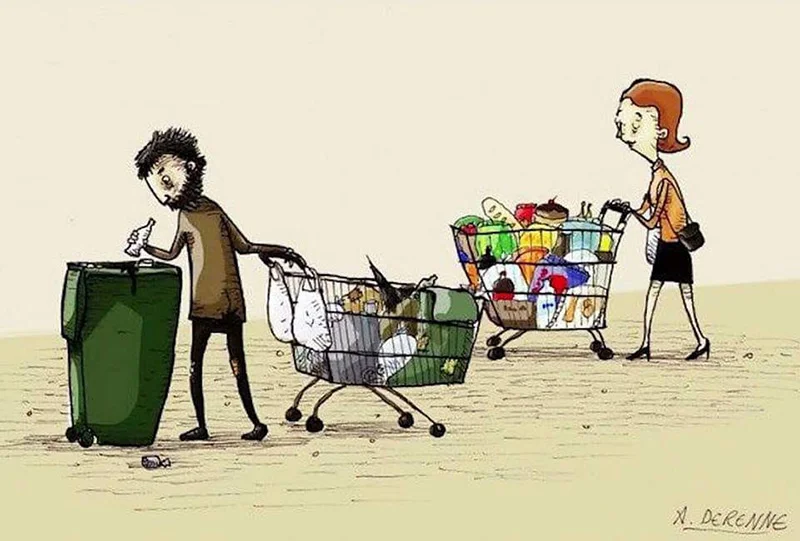
Neo-liberal economists assess economic development using parameters like GDP growth, inflation rate, interest rates, debt/GDP ratio and such and recommend measures to improve these expecting a resultant improvement in poverty rates, employment and household income, but this seldom happens as revealed by increasing inequality, decline in real incomes, malnutrition and school dropouts. Increased GDP doesn’t always translate into improved living standards or reduced poverty if benefits aren’t shared.
Quality of life has to be measured in terms of health, education, morals, satisfying employment and cultural activity. Further the society and environment of humans must be conducive for achieving a satisfactory quality of life. Present development models designed to fit the global neoliberalism focus on the development of the economy often at the expense of poor lives, labour, environment, morals and culture.
Human Development
Development must mean human development because true progress focuses on expanding people’s freedoms, capabilities (health, education, skills), and choices, rather than just economic growth (GDP). It’s a people-centered process that ensures individuals can lead fulfilling, productive lives, requiring inclusive policies, social equity, environmental stewardship, and empowerment for meaningful participation in society, moving beyond mere income increases to holistic well-being and human potential. True development addresses social, cultural, political, and environmental aspects alongside economic progress for sustainable well-being. Development, at its core, is about the expansion of human potential and rights, ensuring everyone has a chance to achieve their full potential.
It’s a transformative process that prioritizes people, their freedoms, and their ability to shape their own lives, making it a fundamental human right and the true measure of societal progress. Investing in education, healthcare, and culture has a powerful multiplier effect on families and societies
If Sri Lanka is taken as an example, over the 70 years since independence economic, social, health and education disparity between the rich and the poor has increased. Poverty rate at present is 24%, malnutrition is hovering around 15%, school dropout rates are alarmingly high, environment and climate vulnerability as experienced recently is frightening, regarding morals less spoken the better, and debt pressure is uncontrollable despite IMF.
Global Scene
Global scene is no better with inequality rising even in countries like the US, Europe, except in China and Vietnam. Poverty rate in the US is 11% and in Europe 12%. In contrast, China and Vietnam, which are not wholly linked to the neo-liberal economic system, have poverty rates below 1% and 4%, respectively. India still has a substantial number below an income level of USD 3.65 per day amounting to about 40% though extreme poverty (income below USD 2.5 a day) has reduced to about 2%. The upper 10% in the countries with more than 10% poverty own more than 60% of the wealth. One may argue that poverty cannot be totally eliminated, however it needs only 0.3% of the global GDP to eradicate poverty of people living below an income level of USD 2.5 per day. The rich don’t seem to care about this sad situation.
Wealth inequality in Sri Lanka is severe, with recent UNDP reports (2023) placing it among the top five most unequal countries in Asia-Pacific, where the richest 1% own about 31% of wealth, while the poorest 50% own less than 4%; this concentration of assets, coupled with the recent economic crisis, exacerbates deep gaps between rich and poor. Income gaps are stark, with Colombo district seeing the richest group hold over 72% of household income, compared to lower-income areas. Despite easing inflation and reasonable GDP growth, food prices more than doubled between 2021 and 2024, contributing to elevated malnutrition and food insecurity and real wages remain below their 2019 levels.
These facts and figures clearly show that neo-liberal policies have failed in human development in Sri Lanka as well as all countries in the grip of neoliberalism. A quarter of the population is in decline in health, education, real income, employment, morals, culture and all other good aspects of living. On the other hand, in countries which are not bound by the neo-liberal global system poor people are not on the decline but are well incorporated in the inclusive system of governance. Martin Jacques a British journalist and author of When China Rules the World: The End of the Western World and the Birth of a New Global Order, has lauded the Chinese model for its economic success and argued that it represents a distinct, effective approach to governance.
Broad-based investment
Sourabh Gupta, a senior fellow at the Washington-based Institute for China-America Studies, has praised China’s governance model for its “broad-based” investment in people, including healthcare, education, and infrastructure. China’s governance model prioritizes stability and long-term policy continuity, positioning it as an adaptable and effective system in certain non-Western contexts. The model’s emphasis on performance-based governance, continuous public engagement through consultative mechanisms, and controlled media strategies presents a unique approach that aligns well with the developmental needs of some emerging economies (M Y Abesha, B F Kebede, 2024). Similarly praise for the Vietnamese system of government, often centers on its political stability, the success of its Đổi Mới (Renovation) economic reforms, and its ability to maintain rapid, sustained growth.
In the grip of neo-liberalism
It is not that the countries caught in the grip of neo-liberalism have not made special attempts to improve the lot of the poor and it is also true that there had been significant improvements but the gains are not stable, and are very much vulnerable to external vagaries such as Trump and his tariffs, climate disasters, etc. as recently observed in Sri Lanka where poverty jumped from 14% to 24%. This is the fault of the system we are caught in and not so much in the intentions or competence of governments. Having said that, the onus however, is on the rulers to try and develop alternate systems that address poverty and human development.
The greed dependent, consumerism driven, profit motivated neo-liberal systems focus on capital accumulation and expect benefits to trickle down to the poor, but as seen so often the amounts that trickle down are woefully inadequate to solve poverty. This is why the national poverty statistics show that the richest country in the world, the US has 11% poor people while China has almost none. This is despite continuous effort by the US government to solve and overcome the problem.
This predicament is common to all poor countries in the global south, they are all in the neo-liberal trap. Individual countries cannot escape even if they want to. If they attempt it what could happen could be seen when one looks around. Vietnam had to pay a heavy price to defeat two imperial powers and fortunately they had Ho Chi Minh which made all the difference. Iraq, Libya, Syria, Venezuela lost but their people may still harbour anti-imperial fervour and one day may rise up.
Need for new World Order
Instead of waiting for that day what has to be done, as I have repeatedly said in my earlier letters in these columns, is for the global south to join forces and develop a new world order based on an economic system that would emphasize on human development rather than GDP, which would have the capacity to face up to the might of imperialism. Together they would be a force that could fearlessly face up to the hegemony of the global north. The new world order must jettison the export led economic model and instead make self- sufficiency in each country the common goal. Instead of competition between these countries to produce for export to the global north, there should be cooperation to help each other to achieve self-sufficiency and human development. If countries of the global south become self-sufficient in essential needs neo-liberalism will be eradicated and human development would take precedence.
by N. A. de S. Amaratunga
Features
The Separation of Powers and the Independence of the Judiciary
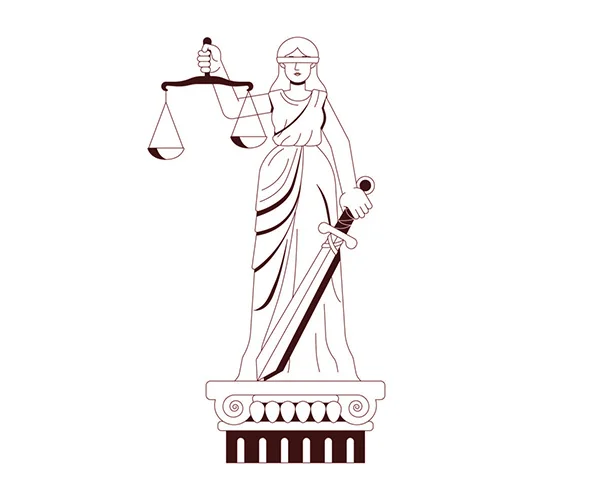
Checks and Balances in the Present Constitution
Moreover, the recent ruling given by the Speaker in Parliament on January 9, 2026, on the Opposition Motion to appoint a Select Committee to review recent appointments made by the JSC to the Judiciary further buttresses the explicit recognition of the SOP and the independence of the Judiciary. The Speaker reiterated the commitment of Parliament to the doctrine of the SOP and refused the Motion on the basis inter alia that Parliament was not hierarchically superior to the Judiciary and cannot be permitted to control the judiciary by creating an oversight mechanism with regard to the JSC.
Professor G.L. Peiris (Prof. GLP) in a speech delivered on December 12, 2025 at the International Research Conference at the Faculty of Law, University of Colombo published in The Island of December 15, 2025 under the caption “Presidential authority in times of emergency – A contemporary appraisal” has critiqued the majority judgment of the Supreme Court of Sri Lanka in Ambika Sathkunanathan V. A.G. on the declaration of emergency by Ranil Wickremesinghe as Acting President on July17, 2022 in response to the Aragalaya. The majority held that Wickremasinghe had violated the Fundamental Rights of the people by a Declaration of a State of Emergency. The author was to attend this event but was unable to do so due to a professional commitment out of Colombo.
After citing authority from several foreign jurisdictions in support of his view of judicial deference to the Executive on matters relating to an Emergency, he advances as one of the grounds as to why the majority were wrong in the Sri Lankan context is that the predisposition to judicial deference is reinforced by a firmly entrenched constitutional norm – “a foundational principle of our public law is the vesting of judicial power not in the courts but in parliament, which exercises judicial power through the instrument of the courts. This is made explicit by Article 4(c) of the constitution which provides “the judicial power of the People shall be exercised by Parliament through courts, tribunals and institutions created and established, or recognised by the Constitution, or created and established by law, except in regard to matters relating to the privileges, immunities and powers of Parliament and of its members, wherein the judicial power of the People may be exercised directly by Parliament according to law” . Prof GLP opines that the majority judgment constitutes “judicial overreach which has many undesirable consequences” including “traducing constitutional traditions; subverting the specific model of separation of powers reflected in our Constitution”.
Prof. GLP, is in effect advancing the view that the Sri Lankan Courts in the present constitutional framework of the Second Republican Constitution 1978 are subservient to the Executive or Parliament.
This view of Prof. GLP is with respect, wrong on both constitutional principle and policy. There are no constitutional restraints on the judicial review of executive action in relation to declarations of emergency. Self-imposed judicial restraint may well constitute an abdication of judicial responsibility.
Unlike the Independence Constitution where a Separation of Powers (SOP) was found by judicial interpretation with the concomitant judicial power to even strike down post enacted legislation, the 1st Republican Constitution of 1972 explicitly did away with the concept of an SOP and instead whilst vesting sovereignty in the people, nevertheless made the National State Assembly the supreme instrument of state power exercising the Executive, Legislative and Judicial power of the people (vide Article 5). Resultantly the judicial review of enacted legislation was expressly done away with and instead pre-enactment review of a Bill tabled in Parliament by a Constitutional Court was provided for.
Indisputably, this fundamental departure introduced by the First Republican Constitution was a direct response to the Queen V. Liyanage and the other judicial power cases where the Courts expressly recognised an SOP and the jurisdiction to even review the constitutionality of post enacted legislation.
But this doctrine of the abolishing of the SOP was subsequently abandoned, and one of the significant and welcome departures introduced by the Second Republican Constitution of 1978 was the explicit reintroduction into our constitutional framework of the principle of an SOP. This is made explicit by Articles 3 and 4 of the Constitution which vests Sovereignty in the people but proceeds to delineate how that sovereignty is exercised in terms of the trichotomy of the Executive, Legislative and Judicial powers and the further recognition of franchise and Fundamental Rights as also integral components of the sovereignty of the people.
Although the twin principles introduced in 1972 of a constitutional bar on the post-enactment review of legislation was retained together with the pre-enactment review of legislation in the present 1978 Constitution, nevertheless the reintroduction of the SOP which guarantees the independence of the Judiciary is a fundamental feature of the present Constitution.
Although Article 4(c) of the present Constitution does state that “the judicial power of the People shall be exercised by Parliament through courts … recognised by the Constitution … except in regard to matters relating to the privileges, immunities and powers of Parliament and of its Members, wherein the judicial power of the People may be exercised directly by Parliament according to law”, nevertheless there is a cursus curiae (practice of the court) of judicial authority by the Sri Lankan superior Courts that have recognised both the concepts of the SOP and the independence of the Judiciary from Executive or Legislative encroachment.
Leading cases which have recognized an SOP include Premachandra V. Monty Jayawickrema (1994) 2 SLR 90 (SC) and the Supreme Court Determination on the 19th Amendment to the Constitution (2002) in which the author appeared as Junior Counsel to the late Deshamanya H.L. de Silva P.C. The Supreme Court has recognised that the independence of the Judiciary is an intrinsic component of the present Constitution in several cases including the Court’s Determination on the Industrial Disputes Act (Special Provisions) Bill 2022. In fact, a more explicit pronouncement was made in Hewamanne V. De Silva where the Supreme Court held that judicial power vested solely and exclusively in the Judiciary (1983) 1 SLR 1 at 20.
Moreover, the explicit vesting in the Supreme Court of Sri Lanka under Articles 125 and 126 of the exclusive jurisdiction to interpret the Constitution and in respect of Fundamental Rights underscores the preeminent role of the Judiciary in our constitutional framework. Foundational principle of the present Constitution as recognized by our Courts include the Rule of Law, power is a trust, and there are no unfettered discretion in public law. Regrettably, Prof. GLP assails these welcome advances made in our public law jurisprudence.
In our constitutional setting of checks and balances and judicial oversight it is the function of the Judiciary to review the legality of Executive action, including matters relating to the declaration of a State of Emergency and Emergency Regulations. The duty of interpreting an Act of Parliament is a function of Courts and not of Parliament (Court of Appeal in C.W.C. V. Superintendent, Beragala Estates 76 NLR 1). The author cited this decision to the Supreme Court in challenging the Inland Revenue Bill introduced by the late Mangala Samaraweera. That Court reiterated this principle and agreeing with the author, ordered a referendum on a particular Clause.
Even in the pre-independence period up to 1948, when vide powers were conferred on the Governor who exercised Executive authority, the Courts have unequivocally reviewed the legality of executive action as manifest by the significant decision of the Supreme Court in 1937 in “In Re. Mark Anthony Lester Bracegirdle“, where the executive act of the Governor of arrest and deportation of Bracegirdle to Australia was reviewed by the Supreme Court and quashed. This decision was a striking assertion of judicial independence and is the first significant judicial review of executive action.
Moreover, the recent ruling given by the Speaker in Parliament on January 9, 2026, on the Opposition Motion to appoint a Select Committee to review recent appointments made by the JSC to the Judiciary further buttresses the explicit recognition of the SOP and the independence of the Judiciary. The Speaker reiterated the commitment of Parliament to the doctrine of the SOP and refused the Motion on the basis inter alia that Parliament was not hierarchically superior to the Judiciary and cannot be permitted to control the judiciary by creating an oversight mechanism with regard to the JSC.
(The author is a President’s Counsel and a Professor of Law)
By Nigel Hatch1
Features
Trump’s Interregnum
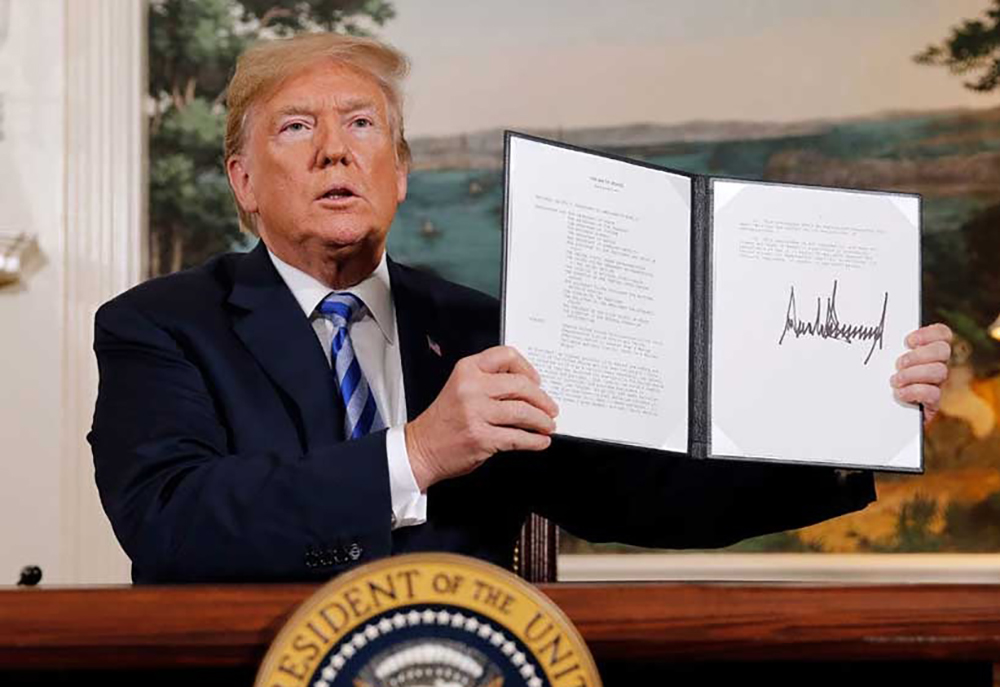
Trump is full of surprises; he is both leader and entertainer. Nearly nine hours into a long flight, a journey that had to U-turn over technical issues and embark on a new flight, Trump came straight to the Davos stage and spoke for nearly two hours without a sip of water. What he spoke about in Davos is another issue, but the way he stands and talks is unique in this 79-year-old man who is defining the world for the worse. Now Trump comes up with the Board of Peace, a ticket to membership that demands a one-billion-dollar entrance fee for permanent participation. It works, for how long nobody knows, but as long as Trump is there it might. Look at how many Muslim-majority and wealthy countries accepted: Saudi Arabia, Turkey, Egypt, Jordan, Qatar, Pakistan, Indonesia, and the United Arab Emirates are ready to be on board. Around 25–30 countries reportedly have already expressed the willingness to join.
The most interesting question, and one rarely asked by those who speak about Donald J. Trump, is how much he has earned during the first year of his second term. Liberal Democrats, authoritarian socialists, non-aligned misled-path walkers hail and hate him, but few look at the financial outcome of his politics. His wealth has increased by about three billion dollars, largely due to the crypto economy, which is why he pardoned the founder of Binance, the China-born Changpeng Zhao. “To be rich like hell,” is what Trump wanted. To fault line liberal democracy, Trump is the perfect example. What Trump is doing — dismantling the old façade of liberal democracy at the very moment it can no longer survive — is, in a way, a greater contribution to the West. But I still respect the West, because the West still has a handful of genuine scholars who do not dare to look in the mirror and accept the havoc their leaders created in the name of humanity.
Democracy in the Arab world was dismantled by the West. You may be surprised, but that is the fact. Elizabeth Thompson of American University, in her book How the West Stole Democracy from the Arabs, meticulously details how democracy was stolen from the Arabs. “No ruler, no matter how exalted, stood above the will of the nation,” she quotes Arab constitutional writing, adding that “the people are the source of all authority.” These are not the words of European revolutionaries, nor of post-war liberal philosophers; they were spoken, written and enacted in Syria in 1919–1920 by Arab parliamentarians, Islamic reformers and constitutionalists who believed democracy to be a universal right, not a Western possession. Members of the Syrian Arab Congress in Damascus, the elected assembly that drafted a democratic constitution declaring popular sovereignty — were dissolved by French colonial forces. That was the past; now, with the Board of Peace, the old remnants return in a new form.
Trump got one thing very clear among many others: Western liberal ideology is nothing but sophisticated doublespeak dressed in various forms. They go to West Asia, which they named the Middle East, and bomb Arabs; then they go to Myanmar and other places to protect Muslims from Buddhists. They go to Africa to “contribute” to livelihoods, while generations of people were ripped from their homeland, taken as slaves and sold.
How can Gramsci, whose 135th birth anniversary fell this week on 22 January, help us escape the present social-political quagmire? Gramsci was writing in prison under Mussolini’s fascist regime. He produced a body of work that is neither a manifesto nor a programme, but a theory of power that understands domination not only as coercion but as culture, civil society and the way people perceive their world. In the Prison Notebooks he wrote, “The crisis consists precisely in the fact that the old world is dying and the new cannot be born; in this interregnum a great variety of morbid phenomena appear.” This is not a metaphor. Gramsci was identifying the structural limbo that occurs when foundational certainties collapse but no viable alternative has yet emerged.
The relevance of this insight today cannot be overstated. We are living through overlapping crises: environmental collapse, fragmentation of political consensus, erosion of trust in institutions, the acceleration of automation and algorithmic governance that replaces judgment with calculation, and the rise of leaders who treat geopolitics as purely transactional. Slavoj Žižek, in his column last year, reminded us that the crisis is not temporary. The assumption that history’s forward momentum will automatically yield a better future is a dangerous delusion. Instead, the present is a battlefield where what we thought would be the new may itself contain the seeds of degeneration. Trump’s Board of Peace, with its one-billion-dollar gatekeeping model, embodies this condition: it claims to address global violence yet operates on transactional logic, prioritizing wealth over justice and promising reconstruction without clear mechanisms of accountability or inclusion beyond those with money.
Gramsci’s critique helps us see this for what it is: not a corrective to global disorder, but a reenactment of elite domination under a new mechanism. Gramsci did not believe domination could be maintained by force alone; he argued that in advanced societies power rests on gaining “the consent and the active participation of the great masses,” and that domination is sustained by “the intellectual and moral leadership” that turns the ruling class’s values into common sense. It is not coercion alone that sustains capitalism, but ideological consensus embedded in everyday institutions — family, education, media — that make the existing order appear normal and inevitable. Trump’s Board of Peace plays directly into this mode: styled as a peace-building institution, it gains legitimacy through performance and symbolic endorsement by diverse member states, while the deeper structures of inequality and global power imbalance remain untouched.
Worse, the Board’s structure, with contributions determining permanence, mimics the logic of a marketplace for geopolitical influence. It turns peace into a commodity, something to be purchased rather than fought for through sustained collective action addressing the root causes of conflict. But this is exactly what today’s democracies are doing behind the scenes while preaching rules-based order on the stage. In Gramsci’s terms, this is transformismo — the absorption of dissent into frameworks that neutralize radical content and preserve the status quo under new branding.
If we are to extract a path out of this impasse, we must recognize that the current quagmire is more than political theatre or the result of a flawed leader. It arises from a deeper collapse of hegemonic frameworks that once allowed societies to function with coherence. The old liberal order, with its faith in institutions and incremental reform, has lost its capacity to command loyalty. The new order struggling to be born has not yet articulated a compelling vision that unifies disparate struggles — ecological, economic, racial, cultural — into a coherent project of emancipation rather than fragmentation.
To confront Trump’s phenomenon as a portal — as Žižek suggests, a threshold through which history may either proceed to annihilation or re-emerge in a radically different form — is to grasp Gramsci’s insistence that politics is a struggle for meaning and direction, not merely for offices or policies. A Gramscian approach would not waste energy on denunciation alone; it would engage in building counter-hegemony — alternative institutions, discourses, and practices that lay the groundwork for new popular consent. It would link ecological justice to economic democracy, it would affirm the agency of ordinary people rather than treating them as passive subjects, and it would reject the commodification of peace.
Gramsci’s maxim “pessimism of the intellect, optimism of the will” captures this attitude precisely: clear-eyed recognition of how deep and persistent the crisis is, coupled with an unflinching commitment to action. In an age where AI and algorithmic governance threaten to redefine humanity’s relation to decision-making, where legitimacy is increasingly measured by currency flows rather than human welfare, Gramsci offers not a simple answer but a framework to understand why the old certainties have crumbled and how the new might still be forged through collective effort. The problem is not the lack of theory or insight; it is the absence of a political subject capable of turning analysis into a sustained force for transformation. Without a new form of organized will, the interregnum will continue, and the world will remain trapped between the decay of the old and the absence of the new.
by Nilantha Ilangamuwa ✍️
-

 Business1 day ago
Business1 day agoComBank advances ForwardTogether agenda with event on sustainable business transformation
-
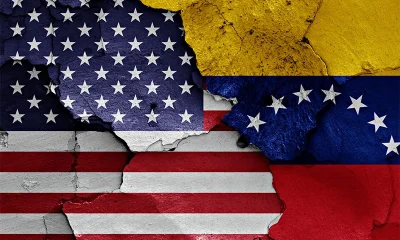
 Opinion6 days ago
Opinion6 days agoAmerican rulers’ hatred for Venezuela and its leaders
-
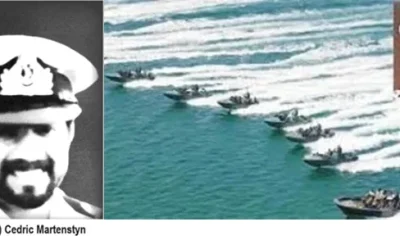
 Opinion4 days ago
Opinion4 days agoRemembering Cedric, who helped neutralise LTTE terrorism
-

 Business4 days ago
Business4 days agoCORALL Conservation Trust Fund – a historic first for SL
-
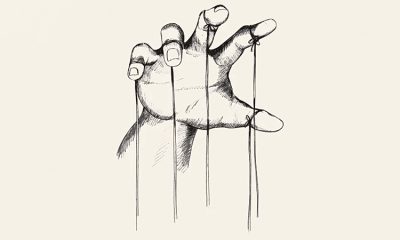
 Opinion3 days ago
Opinion3 days agoA puppet show?
-
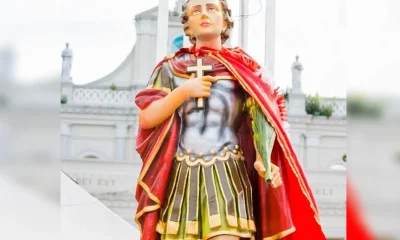
 Opinion6 days ago
Opinion6 days agoHistory of St. Sebastian’s National Shrine Kandana
-

 Opinion1 day ago
Opinion1 day agoConference “Microfinance and Credit Regulatory Authority Bill: Neither Here, Nor There”
-

 Features5 days ago
Features5 days agoThe middle-class money trap: Why looking rich keeps Sri Lankans poor













